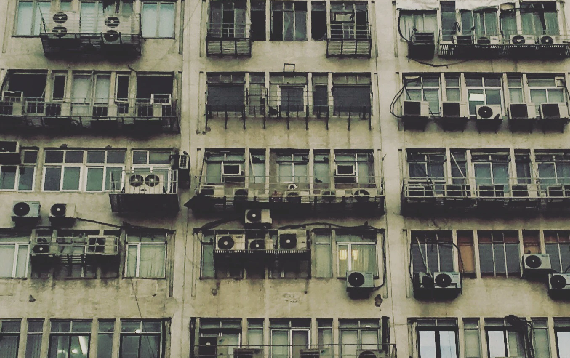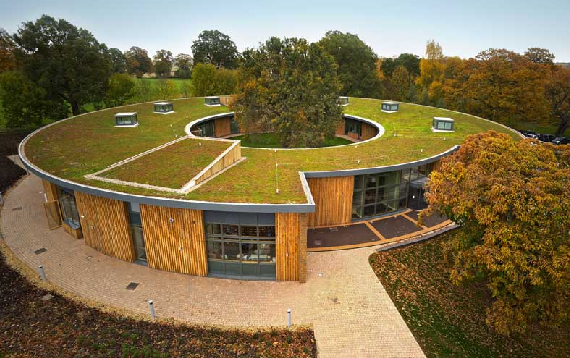For several consecutive days last August, thousands of homes in California suffered power outages. The local power company was unable to supply the electricity needed to meet the huge demand prompted by heat waves that beset the state throughout the month. This small crisis might not have been so talked about if it were not, as some in the media have pointed out, the possible tip of an iceberg, a problem that is not going away and extends beyond U.S. borders.
Air conditioning, the summertime hero for many households, has been thrust into the spotlight. And if the correlation that various studies have made between AC usage in enclosed spaces and the spread of the COVID-19 virus were not enough, another more long-lasting argument against air-conditioning has emerged, one which will hold us accountable sooner or later: sustainability.
The paradox has been presented: climate change is causing more intense, more prolonged warm seasons, which in turn causes greater use of air conditioning, which in the long run may contribute to even further exacerbating the climate crisis. Is it possible to break the cycle?
A bit of history
More than 100 years ago, a young engineer named Willis Carrier accidentally invented air conditioning while trying to create a device to control the ambient humidity and temperature conditions for a printing press. The system Carrier created was inspired by his observation of the cooling impact of water on the surrounding atmosphere. Air conditioning appliances quickly became popular in industry and in large entertainment centers like theaters and large stores. After World War II, smaller, more affordable units made their way into homes.

In their decades-long history, air-conditioning appliances have seen improvements, but the basic way they work has not changed since those first units of the early twentieth century. Amid the climate crisis that is threatening the planet, voices have emerged with a warning: The time has come to rethink one of the inventions deemed essential for summertime.
The environmental costs of air conditioning
Hydrofluorocarbons or HFCs are chemical refrigerant gases that extract and absorb heat allowing the cooling that results from air conditioning systems. They began to be used in 1987 with the Montreal Protocol which determined that CFC gases should no longer be used because of the damage they were causing the ozone layer. Although HFCs do not have the harmful effect on the ozone layer that CFC gases do, they contribute between 1,000 and 9,000 times more to the warming of the atmosphere than carbon dioxide, making them tough opponents in the fight against global warming. In fact, in 2016 a reform to the Montreal Protocol aiming to gradually reduce the use of hydrofluorocarbons was approved. Fortunately, today, if an air conditioning unit is working properly, it should not release HFC gases into the atmosphere. Though, they could leak during the manufacturing process if the unit has a flaw or when the unit is being disposed of if it is not left at a proper waste facility and thrown out in an unsuitable container.

But HFC gases are not the only problem with air conditioning systems. The other concerning issue, which was manifest in California this summer, has to do with the huge demand for energy air-conditioning use implies. The International Energy Agency (IEA) estimates that 10 percent of the world’s electricity consumption is used for cooling air, and this demand could triple by 2050, with the strongest demand coming from developing countries, a situation that is simply untenable. This is bad news, of course, for sustainability improvement plans as laid out in Agenda 2030 and agreed by the UN’s members in 2015.
The future of air conditioning
Improving the efficiency of cooling appliances is a priority. The International Energy Agency also estimates that air conditioning appliances sold in Japan and Europe are 25 percent more efficient than those sold in the United States and China, thus resulting in significant geographical efficiency differences. Another report released by the IEA in conjunction with the United Nations Environment Program (UNEP) maintains that an international standard for minimum energy efficiency needs to be created. Additionally, it discusses the opportunity represented by sustainable and efficient architecture and urban planning to put natural resources to better use to reduce the energy consumption needed by buildings in general, and air conditioning systems specifically.

There are those who say a further step is needed and that air conditioning units as we know them need to be redesigned. To this end, last year the government of India together with the U.S. nonprofit organization, Rocky Mountain Institute, launched a competition for the creation of a new, much more efficient generation of air conditioning systems. The finalists (who were announced in 2019) will develop and test their prototypes throughout 2020, and the final winners will be revealed next year.
It is important to remember that air conditioning is not merely an apparatus to make us feel more comfortable when it’s too hot. In some of the more extreme climates on Earth, it is a necessity for life and health, not to mention essential for certain industrial and commercial applications. Therefore, the goal for the future is to transform AC into a better version of itself helping people without creating the current repercussions it has on the environment.
Comments on this publication